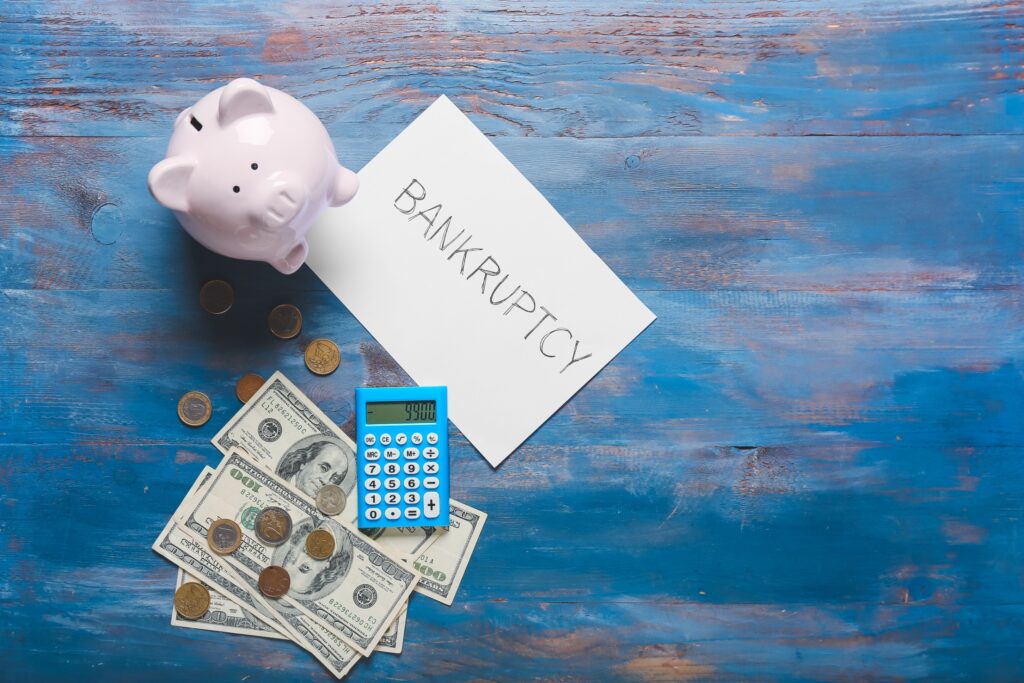Business assets in a chapter 7 may not receive protection. It often depends on the value of the assets and many other factors. If you work for yourself, you know that losing the tools and materials you need to do your work means losing your job. When serious financial trouble hits, and you can’t pay all your bills, you might begin to consider filing for bankruptcy to clear your debts. However, you may wonder what happens to your business assets in a Chapter 7 case. The answer isn’t a simple formula that will apply to everyone in every profession. Some exemptions will let you keep a lot of the tools you use in your job. Others are legal protections for certain types of businesses that may protect your business assets from your personal financial issues.
Business Organization Issues
If your business is organized as a corporation or an LLC, it is a separate legal organization from you personally. Company property belongs to the company, not to you personally. The things you own, like your house, belong to you. Likewise, the money the company owes is company debt, and the money you owe is your own personal debt. Banks and lenders require many small companies to give personal guarantees for most business loans, however. So, you may be responsible for the company’s debt because of an agreement you signed.
Two Types Of Debt
If you own a business and you’re thinking about bankruptcy, you probably have two types of debt. These are usually personal and business obligations that are due. Oklahoma bankruptcy allows some strong exemptions for certain assets in bankruptcy. These can include an allowance for tools of the trade that you rely on for work. Thus it may make you be able to keep things you use for your job. States can make many rules for things that can be kept in bankruptcy. These are called exemptions, and Oklahoma has some solid rules for self-employed people. For example, one exemption is for tools of your trade–the items and equipment you need to do your work. The state rule lets you exempt up to $10,000 worth of work equipment and tools to protect them from being taken and sold in bankruptcy.
Personal Bankruptcy Issues
If you file a personal bankruptcy separate from your business case, you keeping your business after the bankruptcy depends on a few factors. For instance, the first consideration is the type of bankruptcy case you file.
Chapter 13 is a personal reorganization. This allows you to restructure your debt and agree to a payment plan. The plan will last three to five years without giving up your assets of value. This mean you can continue to own and operate your business generally, on two conditions:
- The business must create net income rather than be an ongoing net liability
- The Chapter 13 plan must be set up to pay as much to unsecured creditors as they would receive if you had filed a Chapter 7 liquidation bankruptcy
Chapter 7 bankruptcy and a Larger Business
The bankruptcy trustee will focus on the net value of your company or your ownership interest in it if it is an LLC or a corporation that’s separate from you. For example, if the company has a net value that you could sell to someone else to operate it as an ongoing business, or if it has substantial assets that you could sell for value, the bankruptcy trustee is going to consider the value of the business or its assets as something that could generate funds to pay off creditors. If the assets are still being paid for, it is likely that you are personally responsible for repayment. This occurs even if it is a separate legal structure from you personally. This is means the trustee will want to be able to get that value out of the business to pay off debts.
Chapter 7 and A Small Business
If you own a small business like a sole proprietor or LLC for let’s say construction, you may have some options. If the business, through its own debt or through personal guarantees has you in a bind maybe it may be time to simply let it go and get a fresh start. Sometimes its just the only move you have left. Whether you get another job or try to start over again bankruptcy might work for you. Business assets in a chapter 7 may be protected. This happens if the assets of the business are limited to tools of the trade. Hence, as long as they value doesn’t exceed the exemption amount, you can file and keep the tools.
Business And Personal Bankruptcy Lawyers
Sorting through what happens to business assets In a chapter 7 is tricky and requires an understanding of bankruptcy exemptions in Oklahoma. Skilled Tulsa Okla. bankruptcy attorneys at Kania Law Office can help you assess your unique situation and make the best decisions for your desired outcome. Call us at 918-743-2233 or contact us online to schedule an initial consultation.
Tulsa's Local Bankruptcy Lawyers
 Are you looking for Tulsa attorneys who will fight aggressively for you? Our team of bankruptcy attorneys have the experience needed in Oklahoma law to secure the outcome you deserve.
Are you looking for Tulsa attorneys who will fight aggressively for you? Our team of bankruptcy attorneys have the experience needed in Oklahoma law to secure the outcome you deserve.
Call us today for a free consultation 918-743-2233 or contact us online.


